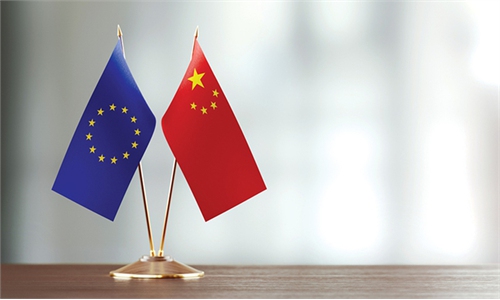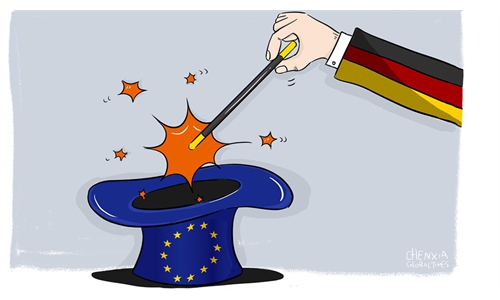Survey finds 96% of German firms have no plans to leave China, many see rising sales

A worker checks Audi cars at FAW-Volkswagen vehicles' parking lot in Changchun, northeast China's Jilin Province, July 9, 2019. The Sino-German auto joint venture FAW-Volkswagen said a record 311,871 Audi vehicles were sold in China in the first half of 2019, up 2.1 percent year-on-year. (Photo:Xinhua)
Germany-based companies have been benefiting from China's strong economic recovery, which partially compensates for their declines in the EU and US markets, and they have high expectations for the China-Europe bilateral investment treaty (BIT) for which negotiations were completed by the end of 2020, a survey released by the German Chamber of Commerce in China showed on Tuesday.
According to the survey, 39 percent of German companies in China recorded higher turnover last year and 42 percent had higher profits. About 22 percent of the surveyed companies' revenues and profits were roughly the same as a year earlier.
China's GDP expanded 2.3 percent in 2020, making it the only major economy in the world to have avoided a contraction.
The ongoing economic recovery has made the country an important location for German companies, with 96 percent of the surveyed companies stating that they had no plans to leave China, while 72 percent planned further investment in such sectors as facilities, machinery, and research and development in 2021.
The report also found that 72 percent of the respondents expect rising turnover in China this year and 56 percent anticipate higher profits.
"The German companies surveyed see great business opportunities in China. Many key industries in China are setting the course for future development. A local presence is important to generate sales in the Chinese market, enter local partnerships, or closely observe competitors in their home market," Andreas Glunz, managing partner for international business at KPMG in Germany, said at an online press briefing on Tuesday held to release the survey result.
China and the EU completed negotiations over the epic BIT by the end of last year.
A comprehensive, balanced and high-level investment deal is expected to be reached soon. The survey found that about 40 percent of the German companies hope for greater market access, while 39 percent expect equal market treatment.
Stephan Woellenstein, chairman of the German Chamber of Commerce in North China, said that the institutional framework for the BIT creates a communication channel to monitor commitments that have made and address the existing challenges.
"German firms expect from the BIT more legal certainty and improvement in regard to leveling the playing field," Woellenstein said.
The survey also found that German companies are becoming concerned about the growing tensions between China and the US, which could create additional uncertainty for German companies' business in China.



